Have a fun, safe & enjoyable holiday with our guide to staying safe in Thailand.
1Cover’s Thailand survival guide is packed full of hot tips and good neighbourly advice to keep you safe on your next trip.
Thailand has long been known as the ‘Land of Smiles’, and you’ll find out why within five minutes of meeting the locals. Packed full of breath-taking beaches, amazing food and wild parties – it’s easy to see why Thailand is one of the most popular tourist destination in South East Asia.
But Thailand comes with a set of challenges you may not have faced at home. This guide is here to help you make the most of your trip and avoid any common tourist mistakes!
 The Songkran Water Festival
The Songkran Water Festival
In April the streets of Thailand transform into a giant water fight to mark the start of the New Year. People take to the streets armed with buckets and water guns, so be prepared to get very wet! Leave your phone at your hotel or wrap it in a plastic bag.
 Hit A Full Moon Party
Hit A Full Moon Party
Now infamous around the world, what started as by a bunch of hippies dancing at Koh Phangan now attracts around 30,000 revellers each full moon. Alcohol is served in buckets and UV paint abounds, it really is a party animal’s paradise.
 Get Trekking
Get Trekking
Thailand is home to some spectacular landscapes and great trails. Explore the lush tropical rainforests on a jungle trek or meet the hill tribes who live in the mountains in the North and West.

Koh Tao, Koh Samui, Koh Phangan, Krabi, Phi Phi, Phuket - Thailand has tons of beautiful islands where you can relax on white sandy beaches. So why not visit as many as you can?
 Scuba Dive
Scuba Dive
Thailand has some of the best diving spots in the world and is one of the cheapest places to learn. There are literally hundreds to choose from, but we recommend Hin Muang, Hin Daeng and the Similan Islands.
 Visit Some Ruins and Temples
Visit Some Ruins and Temples
Thailand has a rich and fascinating history and what better way to experience it than visiting some of the many ancient ruins and temples. Some of the best are Ayutthaya and Sukhotha. Both are UNESCO world heritage sites and are home to hundreds of ancient statues and ruins.
If you can’t get into Thailand than your trip is over before it’s even begun. But never fear - when it comes to visas and entry here’s what you need to know:

If you’re an New Zealand citizen you do not need a visa to enter Thailand for stays of up to 30 days.
 You must have at least 6 months validity on your passport.
You must have at least 6 months validity on your passport.

![]() Overstaying your visa is a serious offence in Thailand.
Overstaying your visa is a serious offence in Thailand.
 Maximum 1 litre
Maximum 1 litre
of alcohol.
 200 cigarettes or 50 cigars or 100 grams of tobacco.
200 cigarettes or 50 cigars or 100 grams of tobacco.
 Plants and animal products are subject to restrictions and quarantine.
Plants and animal products are subject to restrictions and quarantine.

SIM cards and top-ups are widely available throughout Thailand. Major national operators include:
001 - 64 - Area Code - Land Phone Number.
001 - 64 - Area Code - Mobile Phone Number.
001 - Exit number from Thailand for international calls.
64 - Country Code of New Zealand.
Area code -- e.g. 09 is for Auckland
For a full list of New Zealand area codes visit here

00 - 68 - Area Code - Land Phone Number.
66 - Country Code Of Thailand
00 - Exit code for New Zealand, and is needed for making any international call from New Zealand.
Area code – i.e. 2 is for Bangkok
For a full list of Thai area codes visit here
Ambulance and Rescue 1554
Medical Emergency 1669
Fire Brigade 199
Tourist Service Centre 1672
NZ Embassy +66 2 254 2530
24-hour Consular Emergency Centre +61 2 6261 3305

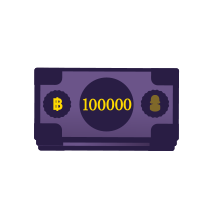
Real bank notes will be made of strong material.
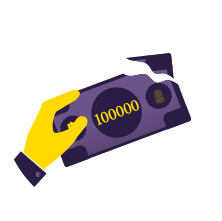
Fake notes may be easy to rip, frayed and oily to the touch.

Check for the watermark of Thailand’s King Bhumiphol on the right hand side.
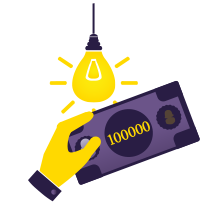
Check for the holographic strip down the left hand side.
Tipping it is not a tradition in Thailand, although restaurants in tourist areas have come to expect tips from foreigners. If you have had good service and would like to tip 10 percent is fine. Restaurants will sometimes add a 10 percent service charge to your bill, so make sure you check before you hand over more money for a tip.
Thailand is a place of fun and there are lots of adventure activities to choose.
Take the right precautions, always get travel insurance and make sure you’re covered for any activities you plan to take part in.
Riding a scooter?
Watch the video to learn more about travel insurance restrictions and conditions when riding a scooter overseas.
The New Zealand Government issue travel warnings for destinations depending on the security issues at hand. You can find them here. Safe Travel advises to exercise a high degree of caution due to terrorist attacks and civil unrest. It is advised to avoid all travel to Yala, Pattani, Narathiwat and Songkhla in southern Thailand due to ongoing violence and terrorism.
 Theft is the most common crime experienced by tourists, so keep your wits about you and your valuables safe.
Theft is the most common crime experienced by tourists, so keep your wits about you and your valuables safe.

Credit card fraud in Thailand is on the increase. Be careful when using your card and never let it out of your sight when paying for things.
 There has been an increase of drive-by bag snatching by thieves on motorcycles.
There has been an increase of drive-by bag snatching by thieves on motorcycles.
 Drink spiking and assaults also occur. Look out for your friends when out on the town, watch your drinks and be aware of your surroundings.
Drink spiking and assaults also occur. Look out for your friends when out on the town, watch your drinks and be aware of your surroundings.
Make sure you use metered taxis. Do not let the driver give you a set price as they will usually overcharge tourists. Make sure the meter is turned on and if the driver refuses or says it’s broken get another taxi, there are plenty in Thailand.
Some taxis will expect you to haggle for a price. This may seem very foreign, and you may even feel like you’re being rude, but many businesses operate in Asia this way. Be sure to agree on a price before you depart.
A fun way to travel around but can be a very bumpy ride. They also do not offer a lot of protection from other vehicles. These do not have meters so make sure you agree on a price before you depart.
One of the safest ways to travel in Thailand and a great way to see the countryside. However, beware of thieves on overnight trains as you may wake up with all your belongings gone.
Thailand has extensive bus services throughout the country. However, buses can be unreliable and they also do not have the same strict maintenance and safety laws as New Zealand. Make sure you don’t scrimp on your bus ticket as you will get what you paid for.
You can spot motorbike taxis by the driver’s orange vests. These are the fastest way to get around crowded cities, but can be very scary!

Fresh milk, nappies and toiletries. Some have baby formula but to be safe it’s best to bring your own from home.

Some villas may not have pool fences so be sure to check this when booking your accommodation.

Some hotel balconies can be damaged or have low railings or balusters that children can climb.

Prepare your kids beforehand by letting them know that they can’t drink the tap water – including in the bath or shower.

You might consider taking a stroller with large wheels for the beaches and un-even footpaths.

Best to research beforehand and find a private driver or a company you can hire one from. You could also take one from home.

With dedicated playgrounds, pools and fun activities for the kids to do.

A pram will come in handy during meals at restaurants and cafes.

Staff at restaurants will often pick up your kids and give them a lot of attention.
 National Children's Day
National Children's Day
National Children’s Day is celebrated each year on the second Saturday of January. Known as "Wan Dek" in Thai the day offers many free events and activities for children throughout the county and is a great time to visit as a family.
Make sure to bring toilet paper with you as some bathrooms will not have any.
Thailand is a relatively safe place for women to travel. As long as you use common sense and don’t take risks you wouldn’t at home your trip should be trouble free. We have put together a few tips for women when visiting Thailand.
 Never leave your drink unattended and avoid accepting drinks from strangers. Avoid getting too drunk or going off with strangers.
Never leave your drink unattended and avoid accepting drinks from strangers. Avoid getting too drunk or going off with strangers.

Thailand is less liberal than Australia so you may want to dress more modestly than you would back home.
 Nudity is not welcome in Thailand. Make sure when you’re sunbathing to keep your bikini top firmly on.
Nudity is not welcome in Thailand. Make sure when you’re sunbathing to keep your bikini top firmly on.
 Women are not allowed to touch monks in Thailand. Make sure you keep a respectful distance.
Women are not allowed to touch monks in Thailand. Make sure you keep a respectful distance.
Getting scammed can happen anywhere, but when you’re a tourist in a new city you’re often a prime target for scams. Read up on the scams you need to know about and you should be A-OK!

You hire out a jet ski and when it is returned to the jet ski owner they claim that it has been damaged. What they don’t tell you is the damage was already done before you took the jet ski for a ride. They will demand money for it.

These drivers will offer to take you around for
the day at a very cheap price. But while giving you a tour of Thailand they will take you to many different stores where you will be pressured into buying things you don’t want or need.

A person will entice you to buy discounted gems at a jewellery store. They will say they can be sold for a higher price when you return home. Of course you will have handed over your cash for something completely worthless.

Watch out for thieves snatching bags on motorbikes. Even if you have a tight grip of your bag it doesn’t mean that the thieves won’t still try and take it. When walking near the roadside, always have your bag or purse facing away from the road.

The police in Thailand are not to be messed with. There have been instances of police or officials taking bribes when you have "broken the law" for example by speeding. To avoid any incidents, always wear a helmet when riding a motorcycle and make sure you have the correct license with you.

A big no-no in Thailand. Drug offences carry very large sentences and even the death penalty. People have been known to offer
drugs to tourist then inform the police. Just
don’t do it.
Here are a few tips on how to survive Thailand from The Secret Traveller
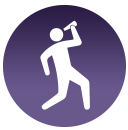
Its fine to have a little boozy fun in Thailand, but the reality is that most of the bad things that happen to tourists there, happen when they’re drunk. Whether it’s being mugged on Koh Pha-Ngan or getting caught up in a scam in Bangkok, when you’re drunk you’re at your most vulnerable. So have a few drinks, by all means. But try to keep your wits about you.

Want to make friends in Thailand? All you have to do is smile. The Thais have a sarcastic, fun sense of humour, and you’ll make yourself pretty popular if you attempt to join in. In Thai culture it’s seen as poor form to be grumpy or upset. And after all, you’re on holidays, so smiling shouldn’t be a chore.

Never make fun of Thailand's Royal Family. Speaking badly of the Royals is actually a criminal offence and could land you in some serious trouble, not to mention make you extremely unpopular with the locals. King Bhumibol Adulyadej passed away in October 2016, and the Thai people are in a 12 month mourning period. His Majesty King Maha Vajiralongkorn Bodindradebayavarangkun acceded to the throne in December.

There’s something you have to remember in Thailand: it’s not like home, where everything is regulated and a government body is in place to make sure everything you do is safe. If something looks dodgy in Thailand – a boat, or a car, or a tuk-tuk – then there’s every chance that it is. Listen to your gut instinct, and always use common sense. If in doubt, don’t do it.

One of the classic Bangkok scams is played out day after day, hour after hour. Guys hang around near the Grand Palace, one of the city’s most popular tourist attractions, and warn visitors that the palace is closed for the day. It’s not. They’ll then suggest you jump in a tuk-tuk and go visit somewhere else. Don’t do it. You’ll end up at a tailor or a jewellery store, about to get ripped off.

There’s a reason renting scooters in Thailand is so popular: it’s fun. It’s also the way most locals get around, so you’re really just fitting in with the crowd. However, there are a few things you need to ensure. First, that you’re licensed to ride a scooter in New Zealand so you’re covered by insurance. Second, that you’re wearing a helmet. And third, that you’re careful. Ever heard of a “Thai tattoo”? It’s a burn mark from a scooter exhaust. Try not to come home with one.

You don’t have to be able to speak the entire language. And you don’t have to be able to read a word. But even the most rudimentary Thai language skills will help you out. It will help you get the best price in markets. It will help you negotiate with tuk-tuk drivers. It will help you make friends while you’re out and about. Most people can speak English – but they’ll love that you know a bit of Thai.

The Thais are seriously proud of their cuisine, and one of the best ways to make friends in the country is to eat as much and as widely as you can. Try food you’ve never even seen before. Eat as many chillies as the locals do. If you’re worried about street food, try to stick to the popular vendors, the ones with queues out the front, and watch as your food is cooked in front of you.

This is one of the unfortunate realities of travelling in Thailand: there are a lot of scammers. There are scammers at airports, scammers at hotels, scammers at tourist attractions and scammers at restaurants. All have their own uniquely annoying tricks that they’ll try on you the same way they’ve tried it on every other tourist who has crossed their path that day. The trick is to see it coming, and walk away.
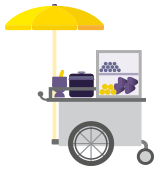
Thailand has some of the most delicious and cheapest street food in the world. Grabbing a bite to eat from one of the many street vendors is all part of the Thai experience. Head to stalls with big crowds and choose food that is cooked to order rather than pre-prepared to make sure it’s fresh. If you're feeling adventurous why not try some crispy fried insects – they go down great with a cold beer.

Never drink the tap water. Always use bottled water and if ordering drinks make sure the ice is not made from tap water. Many travellers don’t even use the tap water to brush their teeth.
Sunburn can be horrendous on a holiday, and can potentially ruin it if you end up with sunstroke. At the risk of sounding like your mother our advice is:
![]() Use a sunscreen with at least 30 SPF.
Use a sunscreen with at least 30 SPF.
![]() Always carry water, heatstroke is not fun.
Always carry water, heatstroke is not fun.
![]() Stay in the shade between 10am and 3pm when the sun is at its hottest.
Stay in the shade between 10am and 3pm when the sun is at its hottest.
Dengue fever is viral disease spread by mosquitos, it’s usually not fatal but can cause some symptoms that you probably won’t
want ruining your holiday.
Symptoms may be mild and flu like but in some cases have developed into more severe forms of the disease.
There is no specific treatment and no vaccine. Seek medical attention immediately if you think you’ve contracted the disease.
You can find more information on the WHO website.
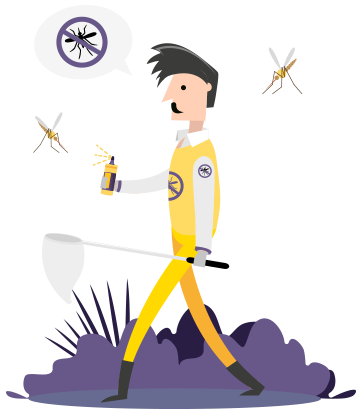
Thailand’s Full Moon Parties are legendary, attracting crowds of 30,000 revellers who party till sunrise. But with drink, drugs and carefree tourists a lot can go wrong. Here are a few tips for staying safe.

A bucket is filled with energy drink, 375 ml of alcohol and then a mixer. They may be cheap but drink these in moderation. The energy drink means it takes longer for you to feel the effects of the alcohol.

It is a traditional at full moon parties to set a rope on fire and jump over it. The aim is to make the rope swing around as fast as possible so the flames go out. Sounds easy enough, but if you play with fire you are going to get burnt, especially if you’ve had a few buckets.

Criminal gangs prey on these parties. Make sure you leave your valuables at your hotel, just take enough money for the night. Also don’t sleep off your drunkenness on the beach as when you wake up you may have been relieved of your valuables.

Look out for yourself and others around you. Avoid getting too drunk. If something doesn’t look right, trust yout gut, speak up and get help.

Party drugs are common, just because it’s Full Moon doesn’t mean they are legal. When dancing away on Koh Pahang it’s easy to forget that if you are caught you could face a lengthy time in a Thai prison.

Being drunk and deciding to take a dip is never a smart idea. The currents in Thailand are strong and if you do get into danger people may be having too good a time on the beach to notice you need help.

If an earthquake occurs it can trigger a tsunami or mudslide. In the event of an earthquake always follow the direction of local authorities. Get to higher ground if there is suspicion of a quake out to sea.
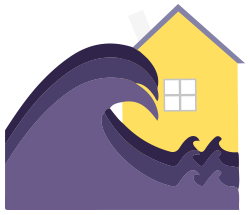
The 2004 tsunami which was one of the worst natural disasters Thailand has ever experienced, although the
country now has one of the best Tsunamis warning systems in South East Asia.

Thailand has a tropical climate and flooding is common. Monsoons are normal during the wet season which varies between different regions. Travel outside of the wet season to avoid flooding.
The majority of beaches are not patrolled by lifeguards and can be very dangerous. Here is our guide to beach safety.
When it comes to safety on the beaches there are a few things to look out for:
If you see red flags on a beach don’t swim there, as they indicate dangerous currents and rips.
These flags mean lifeguards patrol the beach and are the safest to swim on.
This means no lifeguards but are potentially safer than red flagged beaches.
There are many stray cats and dogs in Thailand as well as wild monkeys. These animals should be avoided and you should never touch or play with them.
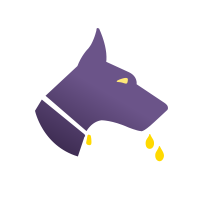
Rabies is prevalent in Thailand and can be contracted through being bitten by an infected animal or if an animal’s saliva gets directly into your eyes, nose, mouth, or broken skin. Our tip is to get vaccinated before your trip if you plan to spend a lot of time outdoors or around animals.
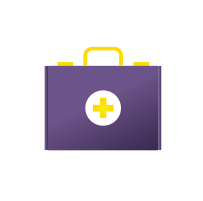
If bitten or scratched by any animal you should immediately wash the wound thoroughly and seek urgent medical attention. You may need to take antibiotics for high-risk wounds so ensure you are checked by a doctor as soon as possible.

Avoid macaque monkeys, even in tourist areas where you are encouraged to touch or go near them. They can steal things from you or attack you. Don’t smile at them as they see a show of teeth as aggression, don’t grab something they are holding as they may bite you, and don’t show them any fear.
Your passport is your ticket to ride so try not to lose it down the back of a couch, or leave it in the back of a taxi. Follow these handy steps if you do lose your passport.
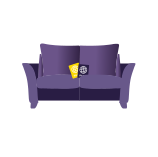
Seems simple right? But sometimes your passport may have been left at the last place you stayed so call the hotel.

If you are unable to find it after searching far and wide (or you know for a fact it was stolen) then you need to report it to the government.

Things you will need to do to get a replacement passport include: an application form, photos and possibly booking an interview.
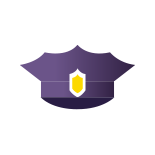
Of it occurring. Ensure you get a police report documenting the loss or theft. You will need this report to make a travel insurance claim.
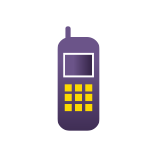
To report the claim as soon as you can. That way you can confirm cover and seek advice.

Tourist Police
1155

Thai Police
191

New Zealand Embassy
+66 2 254 2530
If something serious happens and you find yourself severely sick or injured you’re going to need to get to a hospital, and fast. Always make yourself aware of your nearest hospital, just in case. Hospitals in Thailand deliver great standards of care. Many hospital and clinic staff speak English, and have all the usual infrastructure like emergency departments, air ambulances and specialist clinics.
 Call 1554 for Ambulance and Rescue or 1669 for a Medical Emergency.
Call 1554 for Ambulance and Rescue or 1669 for a Medical Emergency.
 For medical claims you will need a doctor’s report so don’t forget to get this.
For medical claims you will need a doctor’s report so don’t forget to get this.
 The Thai people are always ready to help so if you are in an emergency don't hesitate to ask.
The Thai people are always ready to help so if you are in an emergency don't hesitate to ask.
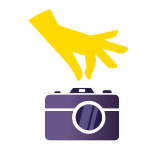
Don’t panic (and don’t fight back if you are aware of the robbery). Your camera isn’t worth as much as your life so best not to risk it.

Contact your embassy or high commission office to get assistance if needed, such as if you have troubles with the local police.
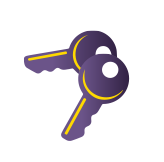
Report stolen keys to your hotel. Replacement keys and locks may need to be arranged.
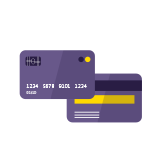
Cancel all credit cards and report them stolen to your bank.

Find the nearest police station and report the incident, and obtain a police report within 24 hours.
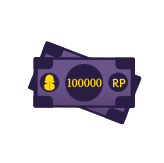
If all your cash and access to money was stolen you can arrange for a money transfer from someone back home.

If you need to replace items such as your beloved camera speak to your insurance company to find out what is covered.

Last but not least stay positive. Theft can happen to even the savviest of travellers.
Whether your off to Thailand for the idyllic scenery and peaceful beaches or the crazy
full moon parties, we hope you have a fun and safe trip! If something goes wrong,
rest assured, at 1Cover, we've got you covered.